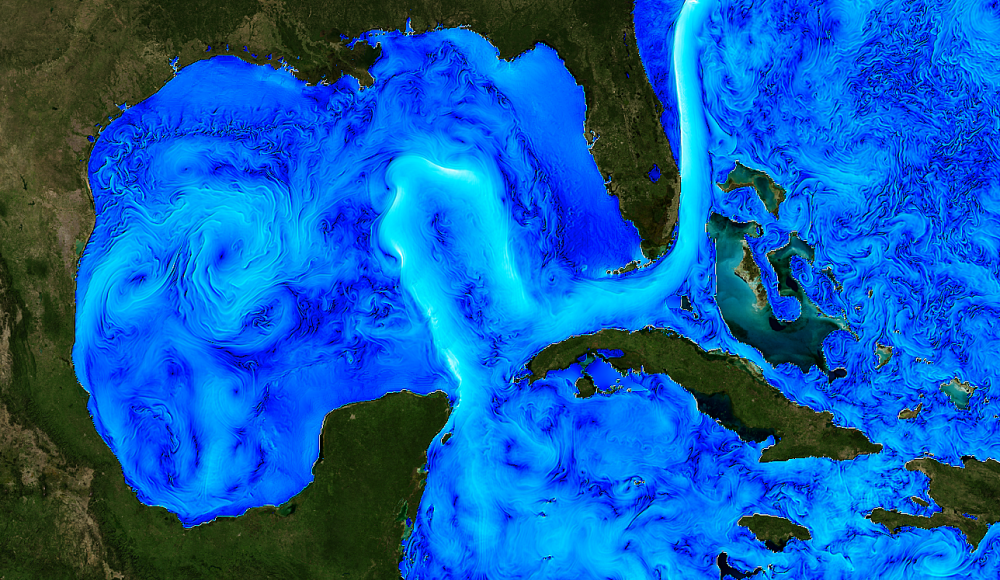The dominant ocean circulation feature in the Gulf of Mexico, the Loop Current (LC), affects everything from animal migrations and the paths and strengths of hurricanes, to shipping and oil and gas operations. Yet the dynamics of the current and the eddies it sheds (Loop Current Eddies or LCE) are not well understood, and gaps remain in oceanographic observations necessary to further understanding and prediction of the LC and LCEs.
For decades, the offshore energy industry has collected an immense amount of physical oceanographic data in the Gulf of Mexico, but this data has historically been considered proprietary and not made publicly accessible.
Now, through a project funded by the National Academies of Sciences, Engineering, and Medicine’s Gulf Research Program, this historical industry data — along with Gulf data from governmental, nongovernmental and academic sources — is being made accessible through the new Gulf of Mexico Loop Current Data Hub, GulfHub. This cache of data can help the oceanography community focused on the Gulf of Mexico understand the LC and LCE.
This data resource hosts more than 5,300 unique physical oceanographic datasets on an ERDDAP server, including more than 3,500 from deepwater moorings, offshore oil rigs and platforms, and vessels that were previously considered proprietary. These newly accessible data can be used to better predict changes to the LC and its subsequent impacts on human and animal communities in the Gulf of Mexico.
GulfHub — at www.GulfHub.GCOOS.org — was created by GCOOS, the Harte Research Institute for Gulf of Mexico Studies, Woods Hole Group, Inc., Ocean Sierra LLC, Texas A&M University’s Geochemical and Environmental Research Group, RPS North America and Fugro. GulfHub data has been fully quality controlled to U.S. Integrated Ocean Observing System Standards.














